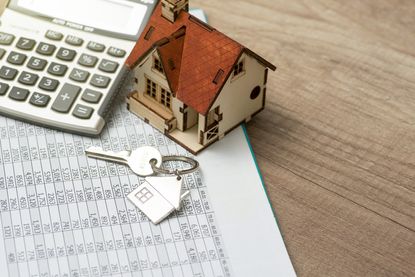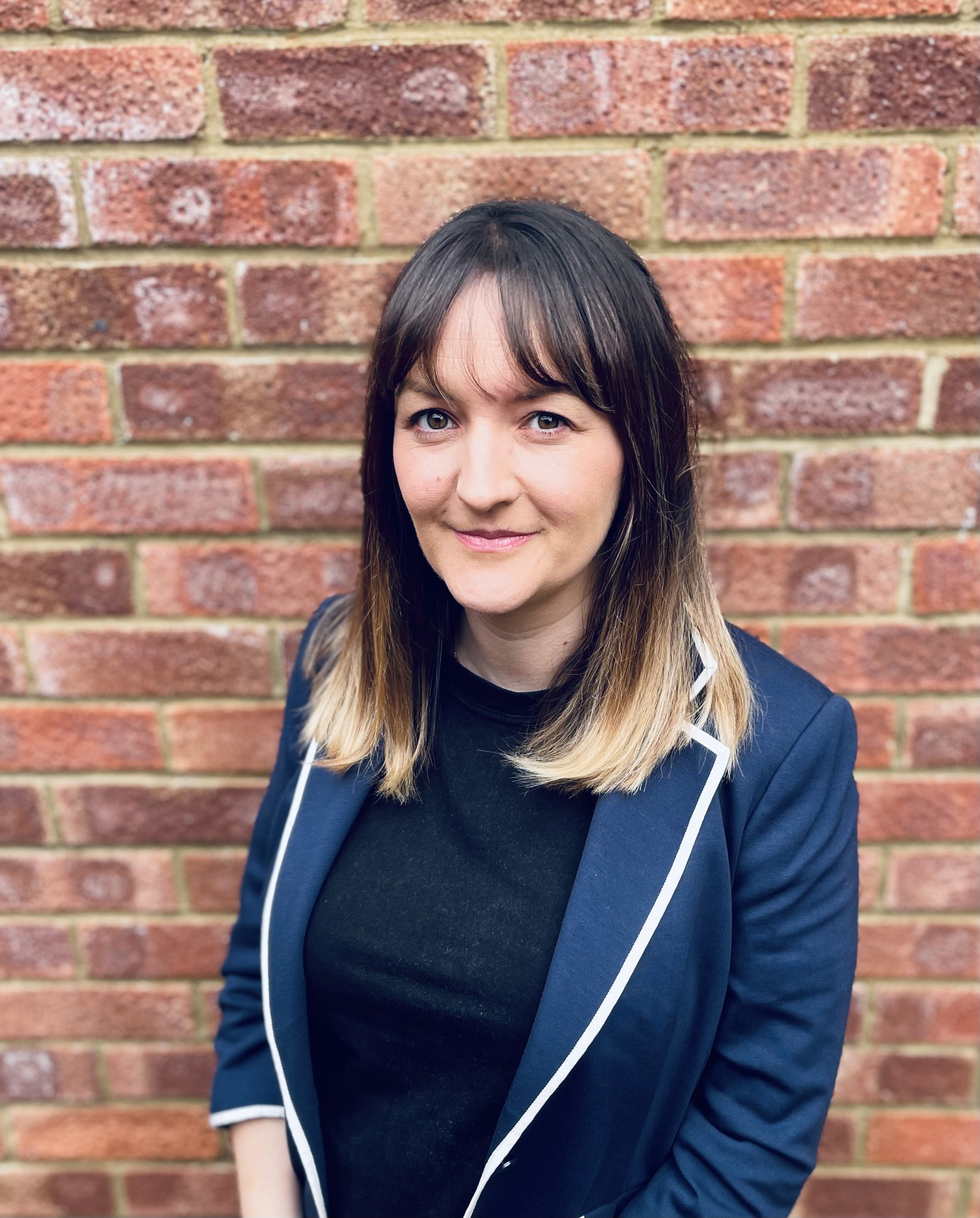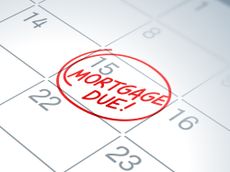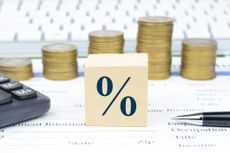House selling costs and process explained
There's lots to think about when it comes to house selling costs, here we outline everything you need to factor into your budget

- Preparing your house to sell it
- Mortgage costs of selling your house
- Estate agent fees
- Energy Performance Certificate (EPC)
- A home report (if you live in Scotland)
- Decide how much to sell your home for
- Legal fees
- Selling your home at auction
- Receiving and accepting an offer
- Removal costs
- Completion and moving out

House selling costs can really add up, from hiring a solicitor to carry out the legal work to paying for an Energy Performance Certificate.
While it may be a lengthy process, especially if you’re buying at the same time, what can make it easier is knowing exactly what you’re going to have to pay out for.
Unforeseen costs will usually crop up but having a rough budget for selling your house can make the entire process a little less stressful.
House selling costs
The first thing to do, before you even think about your new home, is to decide if you really want to sell.
It’s a huge financial decision, not only considering the latest house prices but also if other options, such as extending a house or home improvements will be better.
Here we look at everything you may need to budget for if you decide selling your house is the right option.
1. Preparing your house to sell it
One of the first things you’ll need to do to give your house the best possible chance of being sold is to make sure it’s looking as good as possible. While you don’t want to spend thousands on a home you’re hoping to move out of, it may be worth sprucing it up a little to boost the chances of it selling.
Look After My Bills Newsletter
Get the best money-saving tips, tricks and deals sent straight to your inbox every week. Make sense of your money in partnership with The Money Edit.
These could include fixing any small repair jobs, giving it a deep clean, tidying up the garden and any other outdoor space, and a lick of paint in any particularly worn areas. Anything you do, including hiring tradespeople to help with any jobs, will need to be factored into your overall budget.
2. Mortgage costs of selling your house
When you sell your home, you will need to decide what to do about your mortgage if you have one outstanding.
You can usually port a mortgage over to a new property or take out a new deal. If you do apply for a new mortgage, remember to factor in early repayment charges and mortgage exit fees, if there are any to pay.
If you choose a mortgage broker or adviser you’ll also need to factor in their costs if they charge you, rather than taking a payment from the new provider.
3. Estate agent fees
Right at the start of the house-selling process, you’ll also need to decide how you want to sell your home.
You don’t need to use an estate agent, especially as most homes are listed for free on websites such as Zoopla and Rightmove.
But if you do, you'll pay for the service. Traditional estate agents, with branches, usually charge a percentage of the final sale figure, which can be between 0.9% and 3.6%, according to the Homeowners Alliance. You will also pay VAT, which should be included in the fee you’re quoted.
Online estate agents are another option, and they are usually cheaper. Most offer fixed prices, of up to £1,000 and some offer no sale, no fee packages too.
4. Energy Performance Certificate (EPC)
By law, you’re required to have an Energy Performance Certificate for any property before you sell it.
The certificate will show potential buyers how energy efficient your home is, grading it from A to G (with A the highest). This costs between £60 and £120, according to the Homeowners’ Alliance, and is valid for 10 years.
5. A home report (if you live in Scotland)
If you’re selling your home in Scotland, you’ll also need to arrange and pay for a Home Report which can cost around £500 plus VAT.
6. Decide how much to sell your home for
There are lots of things to look at when deciding on the value of your home. These include:
- What is happening in the local market
- The condition of your home
- How much properties like yours are selling for
- Quotes from estate agents
7. Legal fees
You will need to hire a solicitor when selling your house and they will look after the legal side of things such as drawing up contracts and transferring money.
These costs are split into two when you sell a house, paying your solicitor for their work and the disbursements, charges for transferring ownership of a property.
If you sell a leasehold property, the legal fees will be more so always take the time to compare costs before you agree to a firm.
8. Selling your home at auction
You’ll still pay some fees if you sell your home at auction.
Expect to pay a percentage of the sale price, which can be around 2.5%, plus costs for advertising the property if you use a traditional auction house.
If you choose an online auction, the buyer will pay the costs involved.
9. Receiving and accepting an offer
When you receive an offer you’re happy with you can formally accept it. The estate agent will need to pass on all offers and if you don’t want to accept you can reject an offer or negotiate the price.
Your solicitor will then draw up a contract between you and the buyer which will include a potential date for exchanging contracts and anything included in the sale, such as fixtures, fittings, or white goods.
When contracts have been exchanged you are then legally committed to selling the property.
10. Removal costs
Unless you plan to move your belongings yourself, you will need to hire a removal company. They can usually just pick up and move the boxes (and everything else you own) or for an added fee they can also pack your home up for you.
Prices vary considerably, so always get at least three quotes before confirming. It’s also worth checking if they have insurance to cover your belongings although your existing contents insurance policy could cover you here too.
11. Completion and moving out
On completion day, you transfer ownership of the property to the seller and the money is exchanged by both sets of solicitors.
They will also register the transfer with the Land Registry
Related articles
- The latest UK house prices
- How are mortgage payments calculated?
- Mortgage borrowing calculator: how to work out what mortgage you can afford
- What are the costs of buying a house?
- Help for first-time buyers
- What is the process of buying a house? From offer to completion
- How much deposit do you need to buy a house?

Rebecca Goodman is a freelance personal finance journalist, regularly writing for The Independent, The Guardian, The Sun and a range of specialist publications. Covering all aspects of finance, Rebecca has worked in the sector for the last decade and specialises in insurance, household finance and consumer issues.
-
 Three energy firms pay £8m in switching compensation - has your provider paid out?
Three energy firms pay £8m in switching compensation - has your provider paid out?More than 100,000 customers have received compensation after changing providers, but is now a good time to switch energy suppliers?
By Tom Higgins Published
-
 Save £300 on your supermarket shop with cashback accounts
Save £300 on your supermarket shop with cashback accountsBanks, credit card companies and cashback sites are all offering cashback on your supermarket shop, but can you use them all to max out your savings?
By Vaishali Varu Published
-
 Moving home: why failing to share your new address could cost you money
Moving home: why failing to share your new address could cost you moneyWhen you move home you’ll want to share your new address with family and friends – but being slow to update your contact details with councils, banks and the DVLA can be costly
By Sue Hayward Published
-
 Skipton Building Society to offer deposit-free mortgages for “trapped renters” - everything you need to know about 100% deals
Skipton Building Society to offer deposit-free mortgages for “trapped renters” - everything you need to know about 100% dealsEverything you need to know about how to get a mortgage with no deposit
By Katie Binns Published
-
 Stamp duty: are you entitled to a tax refund worth thousands?
Stamp duty: are you entitled to a tax refund worth thousands?There are plenty of reasons why homebuyers may be entitled to a stamp duty refund, but it’s important to only claim if you’re eligible for a refund (and beware the claims management companies)
By John Fitzsimons Published
-
 House price hotspots: 50 areas where property prices have shot up the most
House price hotspots: 50 areas where property prices have shot up the mostWhich areas have seen the strongest house price growth over the past decade? Discover the towns and locations around the UK where property prices have more than doubled.
By John Fitzsimons Published
-
 Faster mortgage support for Universal Credit claimants – what it means for you
Faster mortgage support for Universal Credit claimants – what it means for youIf you claim Universal Credit, you can now get quicker support with paying your mortgage. We look at when you can get it and how to access it
By Stephanie Baxter Published
-
 Should I fix my mortgage rate?
Should I fix my mortgage rate?Interest rates are expected to rise again on the back of stubborn inflation, before falling next year. We look at the pros and cons of fixing your mortgage rate and what to consider if you need to remortgage soon.
By Stephanie Baxter Last updated
-
 Selling your home: avoid these mistakes to get the best possible price
Selling your home: avoid these mistakes to get the best possible priceFrom boosting kerb appeal to clearing clutter, there are crucial steps to take to ensure you get the highest price when selling your home
By John Fitzsimons Last updated
-
 Interest rates rise to 4.25% - what does it mean for your money?
Interest rates rise to 4.25% - what does it mean for your money?The Bank of England has increased the base rate for the 11th time in a row. We look at whether rates could rise further this year, and what the latest hike means for your mortgage and savings
By Ruth Emery Published